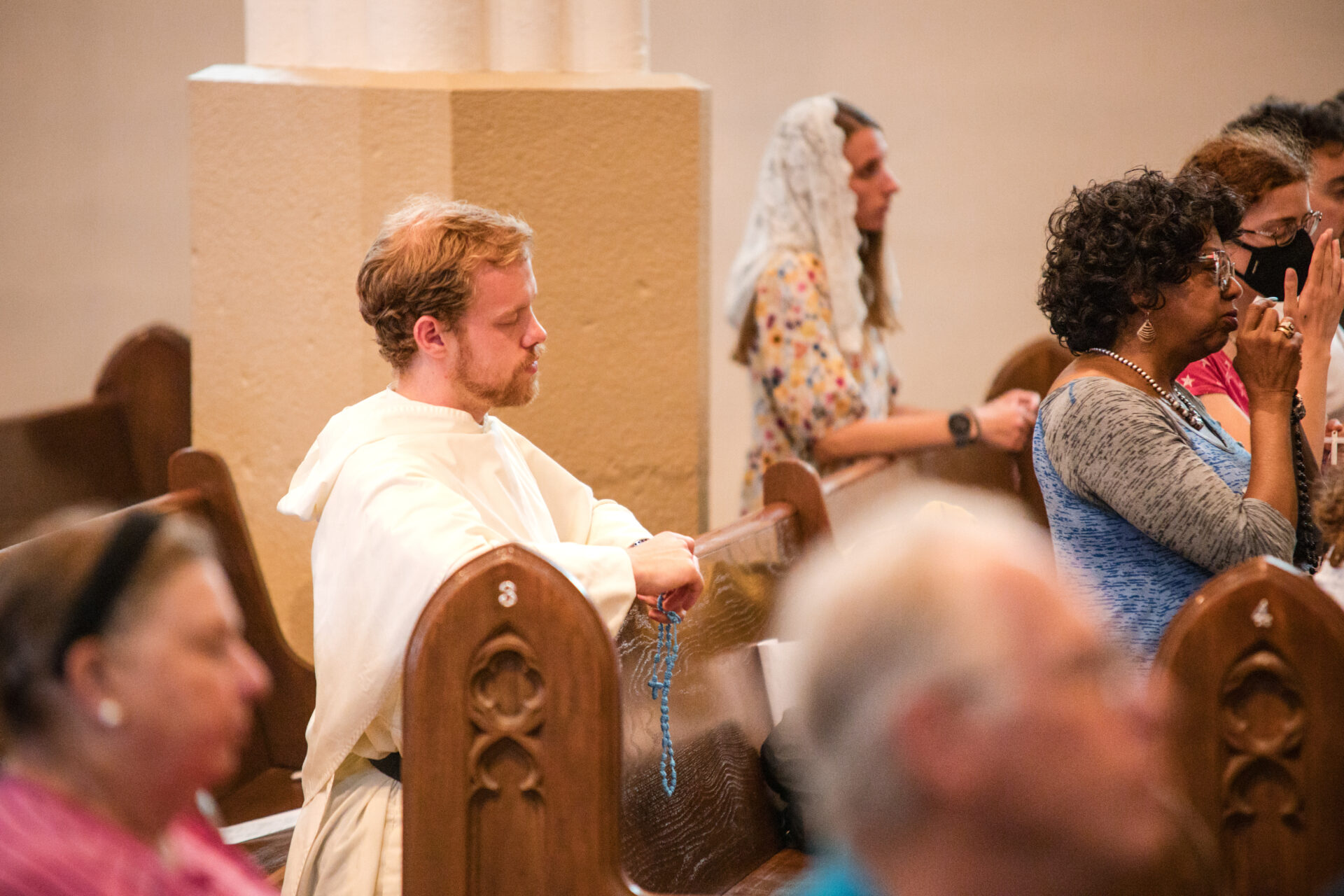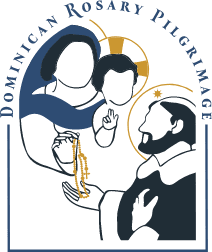The Rosary: A Private or Public Devotion
Dominican Friars | August 1, 2024

In 1961 Venerable Patrick Peyton gathered 550,000 people in San Francisco’s Golden Gate Park to pray the most holy Rosary. This was a tremendous victory for promoting the praying of the Rosary as well as family prayer. Ven. Patrick Peyton was known for the maxim, “the family who prays together stays together.” He believed that the praying of the Rosary would bring so many graces into family life. Since that day in 1961 though, devotions like the Rosary have been argued to remain as private devotions so as to not shove religion into people’s faces and cause them discomfort.
This begs the question, what kind of devotion is the Rosary? It seems like the Rosary has a private devotional life for people. People pray it when they’re on their way to work, when they’re in eucharistic adoration, when they’re in a time of great need, and many other times. There is an intimacy involved in the Rosary that is brought about by private recitation. A person can come to know the Blessed Virgin Mary through the Rosary. Still, more importantly, a person can come to know Jesus Christ more intimately through the Rosary. The private recitation of the Rosary allows one to reflect on the words and mysteries they are praying at their own pace. All of these are good things, but do they warrant the keeping of the Rosary as a private devotion?
The Rosary has another dimension to it that can only be seen when it is prayed in common. The Church offers a plenary indulgence for those who “devoutly recite the Marian Rosary in a church or oratory, or in a family, a religious community, or an association of the faithful, and in general when several of the faithful gather for some honest purpose” (Manual of Indulgences). Ven. Patrick Peyton also asked families to pray the Rosary together, and not in their own separate rooms. What is it about the public or group recitation of the Rosary that is different from the private recitation?
Praying the Rosary in a group gives a person the opportunity to enter into the 3 vows religious brothers and sisters take of poverty, chastity, and obedience. A person enters into obedience by following the pace of the group praying. The pace may be slower or faster than what a person is used to. A person enters into poverty by losing control of how the group might be praying the Rosary. There might be devotions that a group adds to the praying of the Rosary that a person may not think are necessary, but this is how that group has come to pray the Rosary. A person enters into chastity through the mind while praying the Rosary. St. Thomas would call this spiritual chastity. He says that if the human mind delights in union with God, and not union with things contrary to God, this is spiritual chastity.
The public praying of the Rosary can also evangelize the world. This is why St. Pope Paul VI said that the Rosary is the “compendium of the gospel.” The general life of Christ can be explained with these simple beads that we use to pray and those beads are a helpful tool to explain to those who do not believe in Christ.
To conclude, the Rosary cannot be contained to being either just a private devotion nor can it be contained to being just a public devotion. It is both. The Rosary has transformed many people into saints. And the Rosary has the power to transform us into the saints that God has made us be.
This article was written by Br. Jerome Masters, O.P..
Photo by John Osterhoudt.
